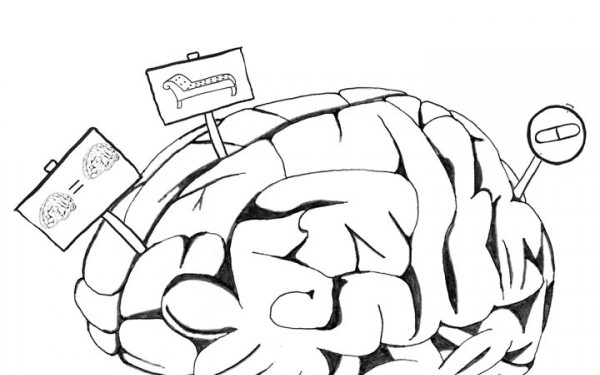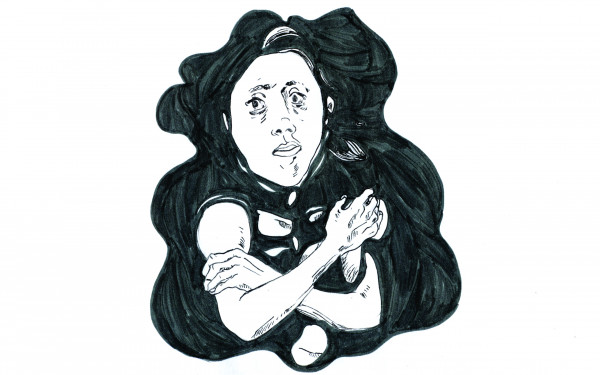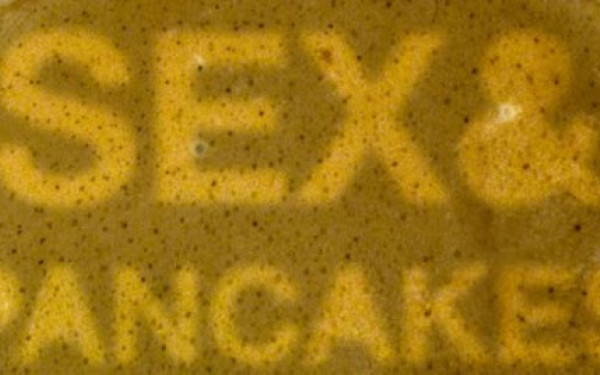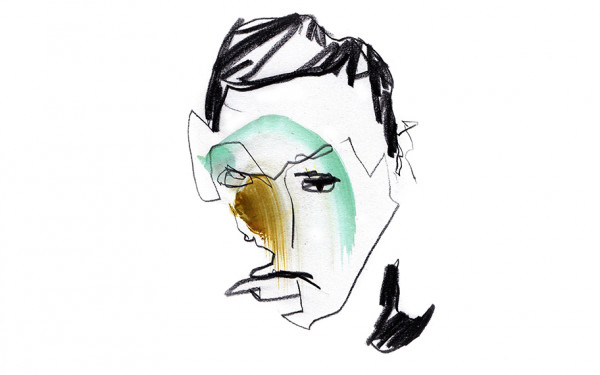The Naming of Things
Can the DSM Do Something Right for Mental Illness?
All Mental Health content is available on our Special Issue Microsite. Works best on Chrome or Firefox.
In 1952, homosexuals were considered sociopaths. The first edition of the Diagnostic and Statistical Manual of Mental Disorders, at the time a new attempt to bring psychiatric nomenclature in line with the modern era, listed homosexuality as a pathological fear of the opposite sex. This listing remained for over 20 years until protests and improved research saw the seventh printing of the second edition, DSM-II, change the category to “sexual orientation disturbance.”
The example points to a question that’s long haunted both the DSM and the concept of mental illness itself—how do we know what mental illness is? Whose definitions are legitimate and why?
For most psychiatry professionals, the debate is less abstract. The DSM-5, published last May, has come under a newly energized wave of criticism that cites not only a lack of new research justifying a new edition, but a lack of scientific rigour altogether.
“DSM diagnoses are based on a consensus about clusters of clinical symptoms, not any objective laboratory measure,” wrote Dr. Thomas Insel, the director of the National Institute for Mental Health in the United States and arguably the most powerful voice for re-orienting mental illness diagnosis towards a biological standard, in a post on the NIMH’s blog last year. “Symptoms alone rarely indicate the best choice of treatment. Patients with mental disorders deserve better.”
Not even the American Psychiatric Association, which publishes the DSM, is entirely confident in the staying power of psychiatry’s so-called “bible.” Jeffrey Lieberman, the president-elect of the APA, was quoted in The New York Times in May as saying, “The last thing we want to do is be defensive or apologetic about the state of our field. But at the same time, we’re not satisfied with it either. There’s nothing we’d like better than to have more scientific progress.”
The obvious implication here is that people are getting misdiagnosed, and the consequences of that can be debilitating. But there’s another argument, perhaps obvious to the point of being virtually invisible, that non-biological ideas of mental health are misguided.
A recent radio documentary on CBC’s Ideas, titled “Rethinking Depression,” explored the “epidemic” of antidepressant use that has emerged in the West since the introduction of drugs like Prozac and Zoloft to the market in the late ‘80s and early ‘90s.
Its argument is that this increase in antidepressant use isn’t indicative of increased rates of major depression, but rather of a trend—spurred on by pharmaceutical companies—of diagnosing moderate depressive states as something worth medicating.
These diagnoses are given legitimacy in the DSM, which itself is produced with heavy consultation from private interests—69 per cent of the task-force members on DSM-5 reported having ties to the pharmaceutical industry, the PLOS Medicine peer-reviewed journal reported in 2012.
Edward Shorter, a historian focusing on psychiatry who was interviewed for “Rethinking Depression,” described the drafting of DSM-III—the edition that would become the template for contemporary mental illness diagnosis—as a matter of personal politics.
“They basically sat around a big table and did horse-trading: ‘I’ll give you your diagnosis if you give me my diagnosis,’” he said.
“Anybody who thinks the DSM is a scientific document really has got another thing coming. [The DSM] is what you learn as your professional compass to guide you through your professional life—[but] what you are learning is a lot of hocus-pocus,” he continued.
“A good deal of the diagnoses makes sense. Some of the diagnoses don’t make sense, they don’t correspond to natural disease entities, and these happen to be some of the main diagnoses in psychiatry.”
The argument is essentially that there are biological origins for mental illness that we’ve lost sight of, but the neural basis of mental disorders, what Weill Cornell psychiatry professor Richard A. Friedman calls “the holy grail of psychiatry,” remains elusive. Although most professionals now maintain that mental illness emerges from complex intersections of biological and environmental factors, there’s a recurring sense of urgency in discovering a primary cause.
One is that we simply live in an unwell society. Jordan Peterson, a psychology professor at the University of Toronto, placed much of the blame on late capitalism in his interview for “Rethinking Depression.” According to Peterson, our society exerts demands for unattainable perfection that are inevitably damaging.
“If you do worldwide surveys of things like happiness, more industrialized countries are less happy,” he said. “And you think, ‘Well what the hell, why is that? Look at our standard of living!’ It’s like, ‘Yeah, and look at what you have to do to maintain that standard of living.’”
It’s a condition that’s out of touch with reality, he explained.
“Modern people think that life should be going well,” he said. “Life is too unlikely and entropically complex and fragile for you to expect that it’ll go well.”
To Peterson, this skewed relationship to reality translates to the medicalization of normal human states that the DSM reinforces.
“There [are] lots of people that use antidepressants instead of getting their life together,” he said. “Does it work? Well, antidepressants won’t fix a bad life.”
This attitude, of course, can sound dangerously similar to the “suck it up” mentality that those suffering from mental illness have spent years trying to undo. It’s this tension that makes criticism of the current psychiatric model difficult to fully commit to—even if the DSM is unrealistic, it’s made mental illness much harder to ignore.
“Fortunately, we don’t need a complete understanding of the neurobiology of mental illness to treat it,” Friedman wrote in response to a New York Times interview with Dr. Insel. “Medicine has always been practiced amid uncertainty.
“Most of my colleagues laugh at the notion that the manual is a ‘bible,’” he continued. “[The DSM] is a practical way of describing psychiatric syndromes, clusters of symptoms that patients experience and that often predict a course of illness and responses to various treatments.”
What Insel sees as a liability, Friedman sees as an asset.
What we might take from the DSM controversy is an altered perception of the diagnosis of mental illness—not as rigid, limiting categories, but as tools to approach a person’s distress and find solutions.
Whether it’s because of the brain’s baffling complexity or because of an immaterial reality to our thoughts, there’s something less tangible about mental health than physical health, and this requires a different understanding.
The DSM is flawed, but these flaws need to be acknowledged alongside its strengths. Even if it’s a less-than-scientific document, our understanding of mental health has always been less—or more—than scientific in itself. In compassionate hands, even flawed tools can be worth preserving.


_600_832_s.png)




